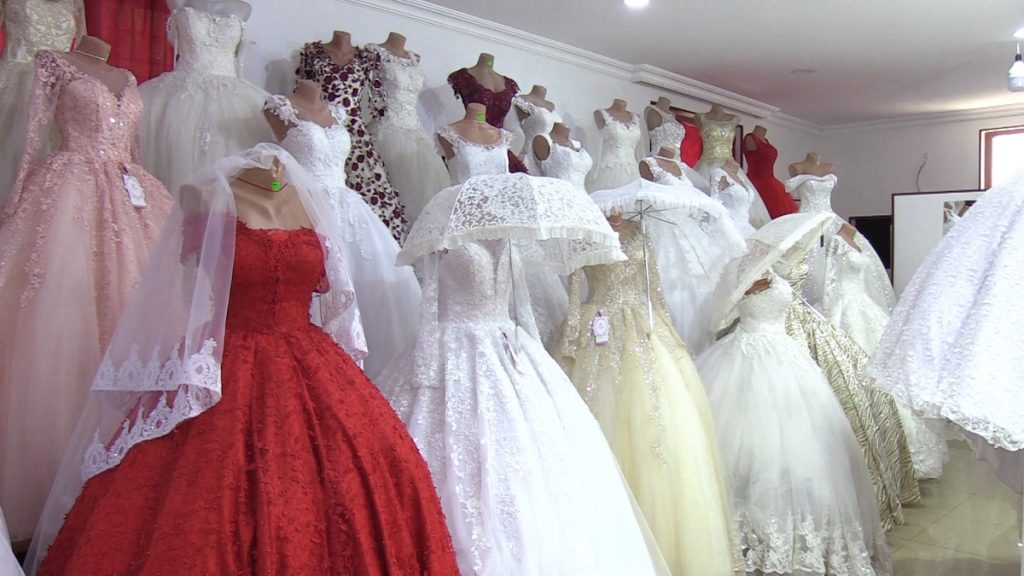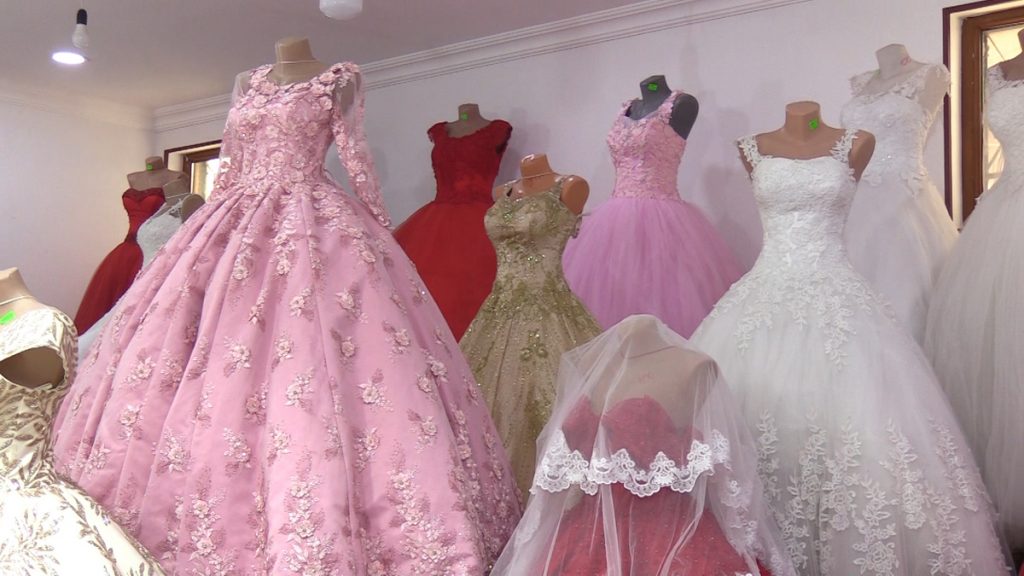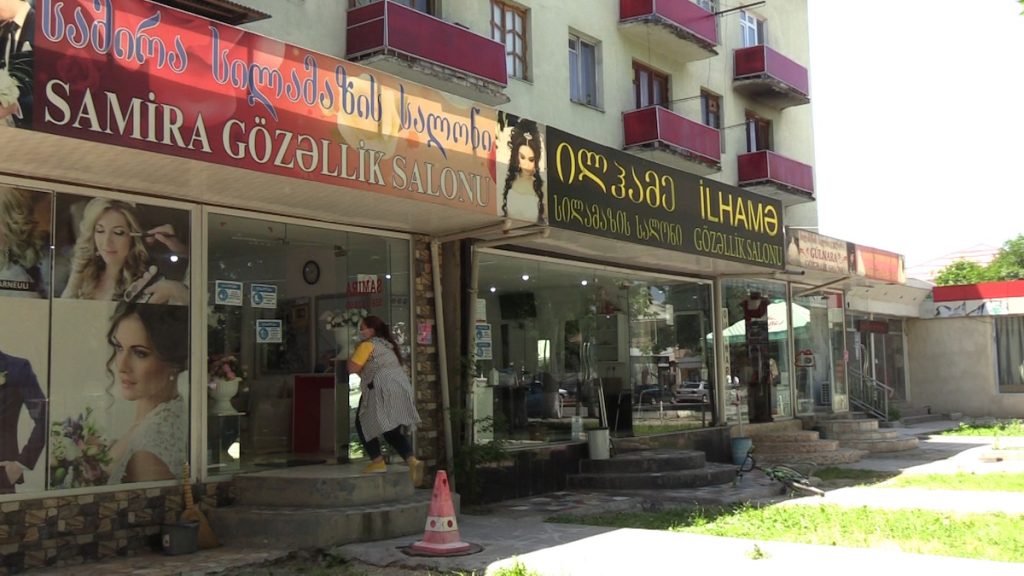Life in the Georgian city of Marneuli without weddings for 1000 guests
Ethnic Azerbaijanis in the Georgian region of Kvemo Kartli are asking the authorities to lift the ban on large weddings.
As of now, only 100 guests can be invited to weddings.
But for locals, this is considered a small wedding; here, it is customary to invite as many as 600-800 people to a wedding.
Azerbaijanis in Georgia arrange weddings according to Azerbaijani traditions. However, the coronavirus has made adjustments not only to the customs and plans of the people who get married, but has also left hundreds of people that work in this sector unemployed.
Weddings have a special place in Azerbaijani culture.
A traditional Azerbaijani wedding can last up to six days, with two days hosted by the groom’s family, two by the bride, and another two between them.
The average wedding hosts 500 guests. There are wedding halls in Marneuli with 800 seats.

In the 1990s, given the difficult economic situation in the country, the number of people invited to the wedding was somewhat reduced, but in recent years Marneuli residents have returned to the traditions of large numbers.
However, some amendments have been made to the tradition. After the usual toasts, one can here more and more modern music instead of traditional.
Renting out wedding halls, catering food, cooking, selling wedding dresses, offering beauty salon services, gifts, gold, video and photographing of the celebration and other wedding-related necessities are a very expensive pleasure. Therefore, the wedding industry is considered to be quite profitable even in small towns like Marneuli.
Previously, weddings were usually celebrated in spring and autumn, but now they are celebrated in summer and winter as well.
The only exception is May. Legend has it the rose plant at one point announced that in May, only she should be the queen, so in this month weddings are not celebrated.
But wedding music has not been heard in Marneuli for 4 months.
In Georgia, 1104 cases of coronavirus have beeen recorded. 912 people have recovered and 16 have died.
A particularly difficult epidemic situation has developed in the Kvemo Kartli region.
Weddings were the livelihood of many residents of Marneuli and the introduction of restrictions due to the epidemic created serious problems for them.
For example, one of the co-owners of the Gizil Taji banquet hall, Zakir Balakishiev, told Marneuli FM that 40 bookings had been received for the hall in March and April, and all of them were canceled.
The wedding salon Aidan lost 95 preliminary reservations, and 45 of its employees were left without work.

Restaurant owners, wholesalers, photographers and videographers, designers, decorators, beauty salons, musicians, dressmakers, etc. have practically no work.
“All January and February I was waiting for the opening of the wedding season. I work as a cleaner in a restaurant for 20 lari (about $6) a day. Plus food. But because of the coronavirus, the season never came,” says local resident Aida.
Beauty salons were allowed to reopen with a number of reservations. But without celebrations, the number of clientele is very small.
“Weddings are the most profitable for us. Now there are none. There are few clients, there are also few jobs and, accordingly, incomes,” says Samira, the owner of a Marneuli beauty salons.

Marneuli photographer Raif Darziev earned money by filming and shooting weddings. According to him, for the first time in many years, during the wedding season he is out of work.
“I am interrupted by occasional photo sessions. It is not known when traditional weddings will be allowed. And small ones – for 100 people, which is allowed, are not customary to celebrate here in Marneuli,” Raif says.

Young people who decided to start a family were also not lucky. Some have already purchased dresses, paid rent for halls, incurred other expenses, and weddings have been postponed indefinitely.
The wedding of 23-year-old Aysel was supposed to take place back in April.
“I had everything ready. Both the dress and the restaurant were paid for, and guests were invited, but everything had to be postponed. It is doubly offensive when I see people feasting in restaurants, and no one observes any rules. And now they say that in winter a second wave of the epidemic is expected … Well, at least for a month the restrictions should be lifted. I’m not the only one expecting my own wedding,” says Aysel.
According to her, some did not get married and even managed to give birth to children, but she herself wants the traditions to be respected.


















